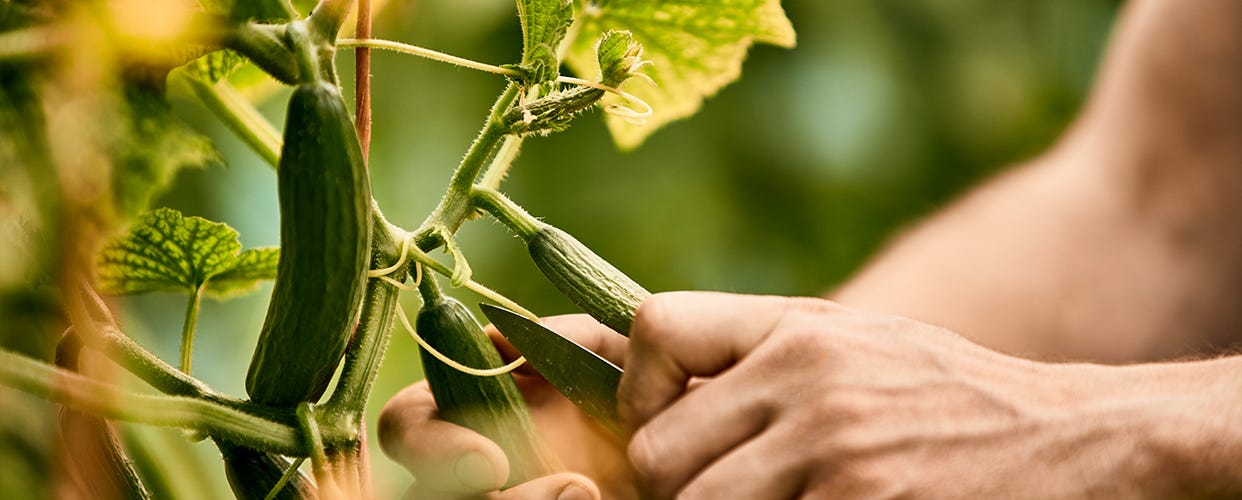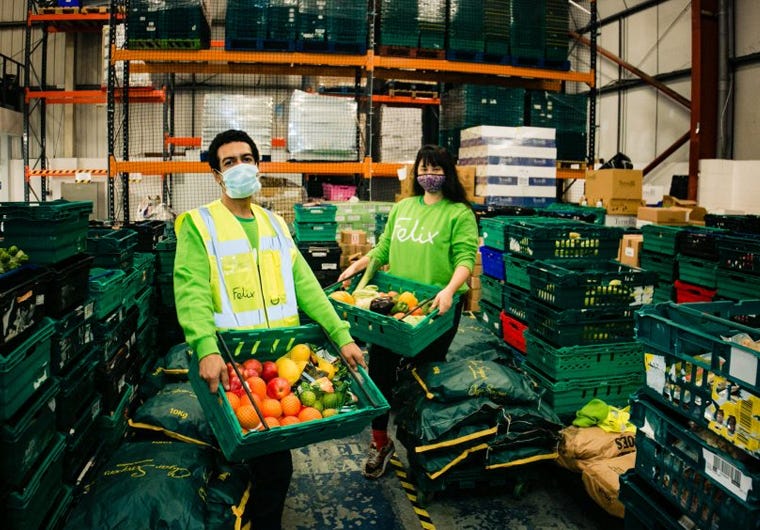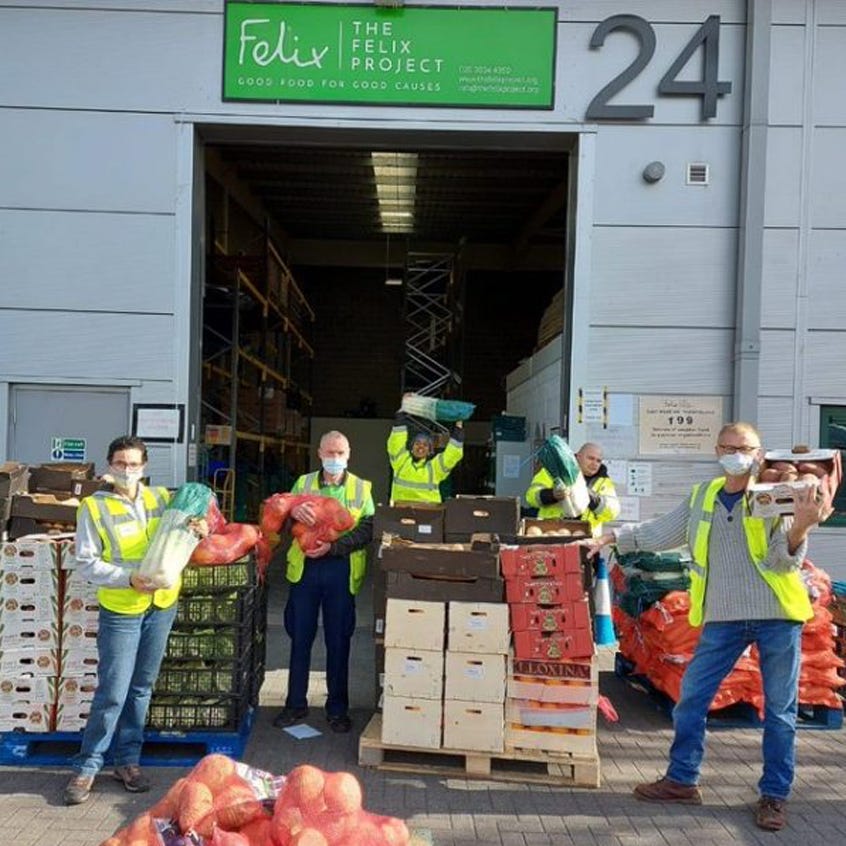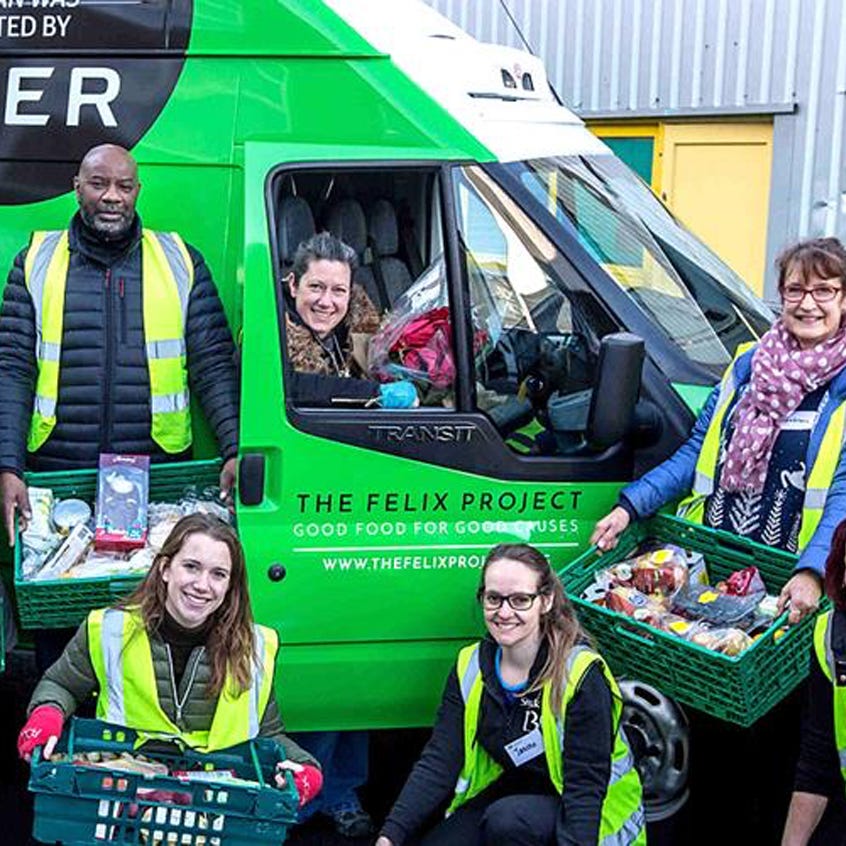
Food waste: it’s out of date
We are committed to not wasting a scrap of food at Daylesford for many reasons. For starters, we know how much hard work goes into farming, growing and producing every mouthful. When we waste food, we waste the resources, energy and water that have been used to produce, package and distribute it.
More importantly, food waste has grave environmental consequences, whether that is unused or unsold food from restaurants and shops, or food we buy which goes uneaten and gets thrown in the bin.
If wasted food ends up in landfill, it creates harmful greenhouse gases. Food waste is known to be one of the world’s largest contributors to CO2 emissions and climate change. The United Nations estimates that if food waste was a country, it would be the third highest emitter of greenhouse gases after the US and China.
Research published by Waste and Resources Action Programme (WRAP), who are behind the UK’s first ever Food Waste Action Week from 1st – 7th March 2021, reveals around a third of the food we produce worldwide is lost or wasted – and a staggering 70% of food waste happens at home.
Yet taking steps to reduce food waste is simple and achievable – meaning everyone has the power to make a real difference by doing their part. As Daylesford’s founder Carole Bamford says:
“It’s something that is a strong focus for us and I believe also needs to be for everybody. We’re continually re-examining processes throughout the business to ensure that not a scrap of food goes to waste.”


Five years ago we forged a partnership with The Felix Project, a charity which is helping to fight the serious problems of food waste and food poverty.
The Felix Project rescues and delivers enough food for 125,000 meals each day, the equivalent of taking 9,000 cars off the road. The food they collect and redistribute is fresh, nutritious and perfectly good to eat – it is simply surplus or unsold stock that would otherwise be wasted.
The Felix Project estimates that nearly 10 million tonnes of food is wasted in the UK every year, and almost 2 million people in London do not have enough to eat.




We place huge value on our partnership with The Felix Project and over the years have explored many different ways to support their valuable work:
- We provide regular donations of surplus food from our farmshops; in 2020 Daylesford donated 458kg of food, the equivalent of approximately 17,756 meals donated to charities, schools and food banks in London
- A new line of seasonal ferments, made in our farm’s Fermentary using gluts from our organic Market Garden, was launched with 100% of profits from every jar sold going straight to The Felix Project
- Our chefs create special dishes on our café menus to raise additional funds for the charity every time these items are ordered
- Our teams support The Felix Project’s volunteer programme in London by carrying out driving and distribution shifts for the charity
- Daylesford team members have also participated in fundraising events such as sponsored bike rides
- During the COVID-19 crisis, The Daylesford Foundation made an additional £100,000 donation to The Felix Project
“Daylesford have been, and remain, a key partner for us at The Felix Project and have played a crucial role in our story so far.
“Through a mixture of funding, volunteering and donations of high quality, nutritious food Daylesford showcase what an ideal partner looks like for an organisation like ours.
“We look forward to working with you for the next five years and beyond.”
